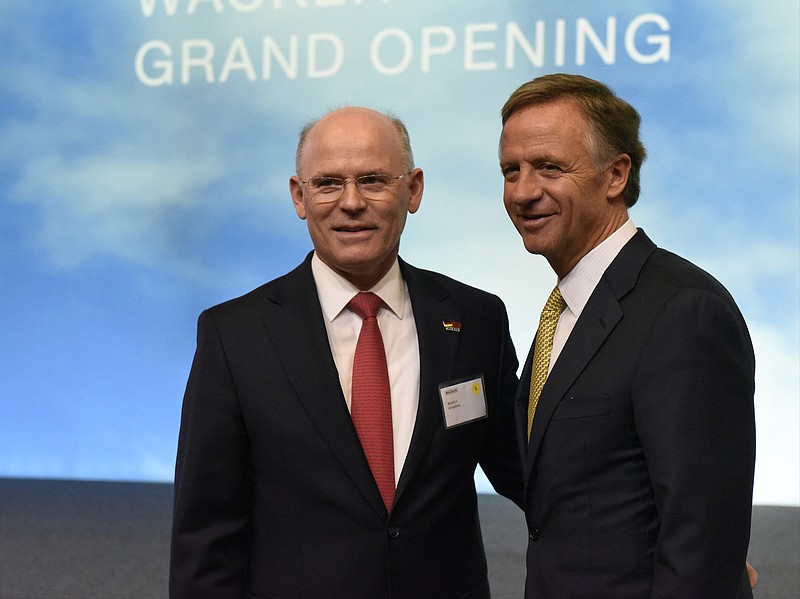Germany is second in direct foreign investment in Tennessee behind Japan, and the state's top economic developers will seek even more business in a new mission next week to Europe's biggest economy.
Gov. Bill Haslam will lead the effort, starting Monday with four days of meetings with German executives who already operate in Tennessee and pitching the state's advantages to other companies interested in setting up shop in the Southeast.
Some 103 German-owned companies have invested nearly $5.3 billion in Tennessee and employ almost 14,000 people, according to the state.
Tennessee ranked No. 1 nationally for job creation resulting from all foreign direct investment in 2015, according to IBM-PLI's 2016 Global Location Trends report.
"So far this year, foreign-owned companies have invested $1.2 billion in Tennessee and committed to create nearly 4,800 jobs for Tennesseans," Haslam said in a statement.
Randy Boyd, who heads the Tennessee Department of Economic and Community Development, said German companies have been invaluable partners in helping make the Volunteer State No. 1 for job creation from foreign direct invesment in two of the past three years.
Investment from German companies account for more than 15 percent of the total $33.4 billion that foreign-owned businesses have invested in Tennessee, the state said.
Bill Kilbride, who heads the Chattanooga Area Chamber of Commerce, said the business group's vice president for economic development, Charles Wood, recently returned from Germany. Kilbride said Wood talked about prospects for economic development around Volkswagen's new sport utility vehicle.
"He had a number of meetings and one follow-up meeting here with one of those companies," he said.
Scott Harrison of the state's ECD office said state officials will be meeting with "a mixture of major German companies with existing operations in Tennessee as well as new prospects." He declined to identify who the governor is meeting with next week in Germany.
In Southeast Tennessee, German chemical giant Wacker recently started production of a plant in Charleston, Tenn., producing polysilicon, a product used in solar power panels.
Wacker has said it invested about $2.5 billion in the plant that's to employ about 650 people. Earlier this year, Wacker officials said they're already looking at erecting an adjacent factory that builds on its sizable investment.
Rudolf Staudigl, the company's CEO, said engineering studies have begun on building a $150 million pyrogenic silica factory at the site. Staudigl termed a second factory "the next logical step," though board approval is still needed and work would not start this year. He said about 50 workers would be employed at the second factory.
VW is finishing a $900 million expansion at its Chattanooga plant, including spending $600 million in Tennessee, to assemble a new sports utility vehicle.
The midsize, seven-seater to be called the Atlas is slated to be officially unveiled in California today. Production will start late this year and the SUV is to be on dealer lots early in 2017, according to the German automaker that's adding 1,400 more workers at the plant by mid-April.
Contact Mike Pare at mpare@timesfreepress.com or 423-757-6318.
